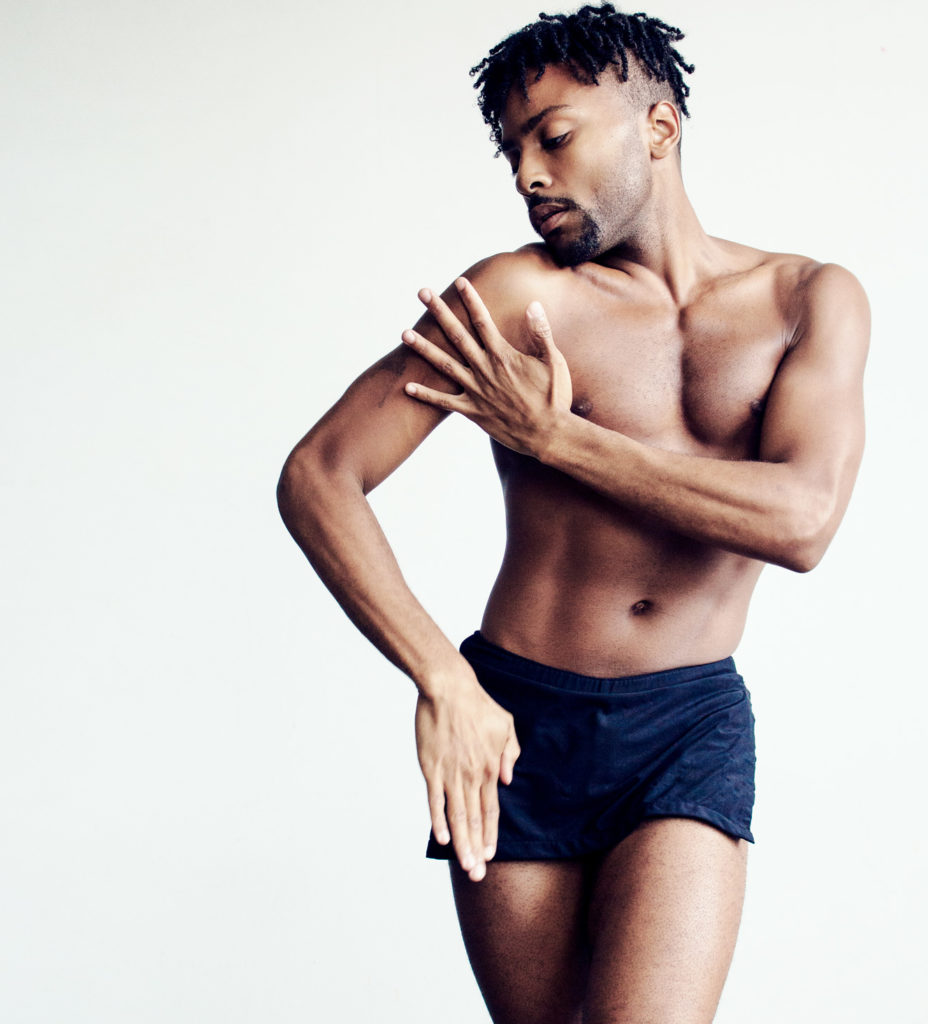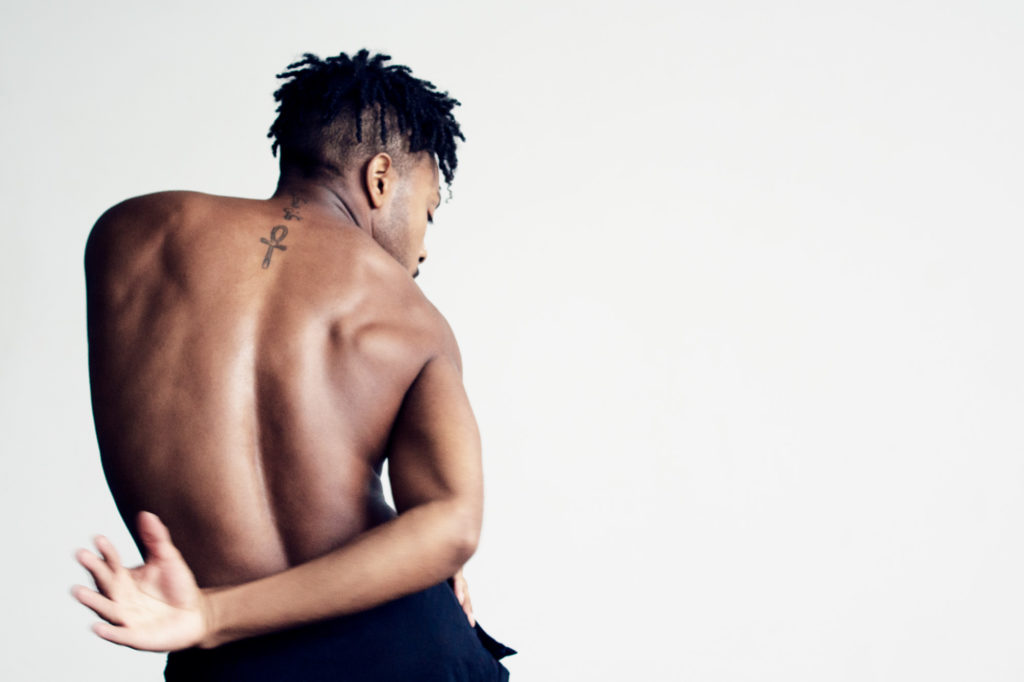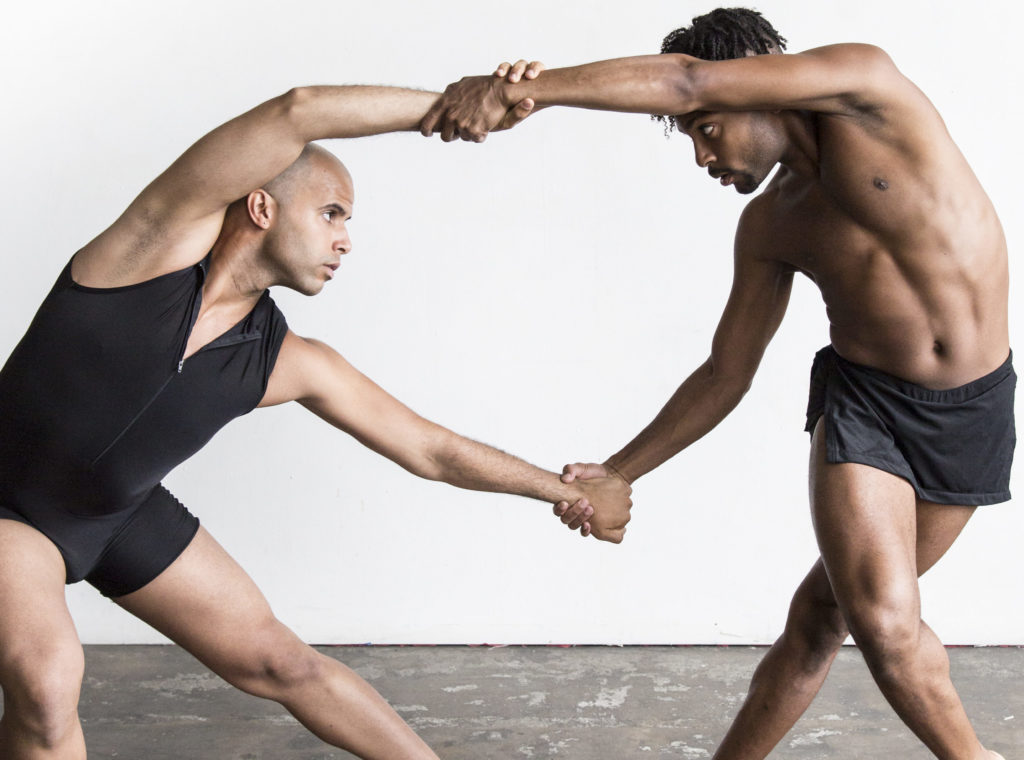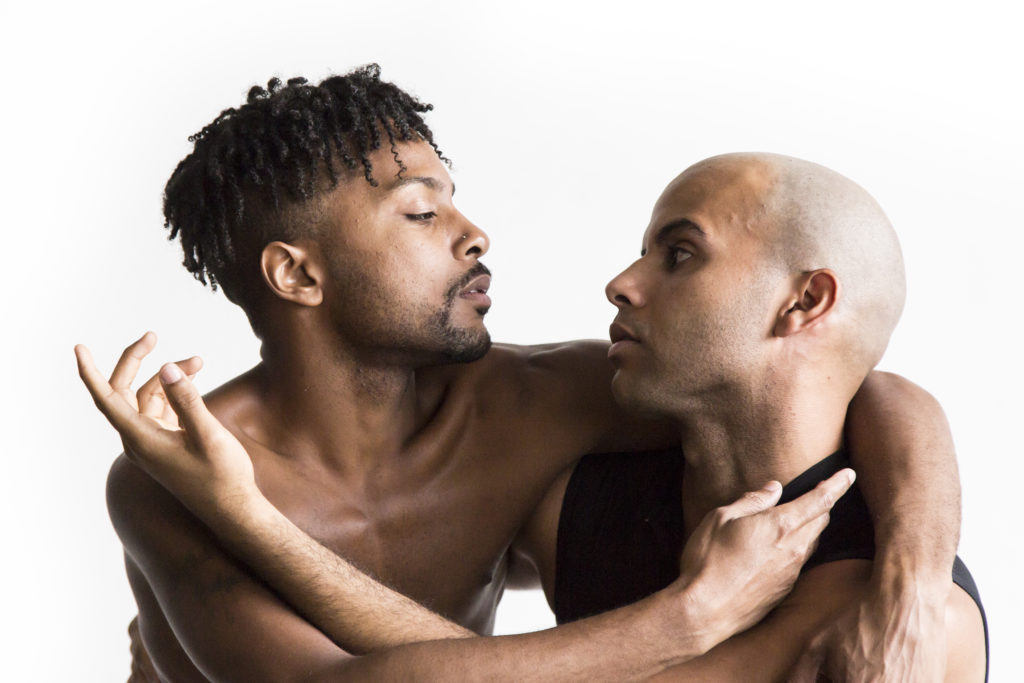Chris is a mid-twentysomething Detroit native that is redefining fearless and leaving his mark in dance.
Unapologetic in more ways than one, Chris believes the key to change is us realizing the power in not only being ourselves, but knowing our story. As he explains, “I’m a f*cking survivor. My dad is from South America and I grew up in Detroit with my mom dirt poor but that young kid from the hood is now performing in Time Square, on TV, and still has a lot of ground to cover…
Yes, I am a bit crazy and a little wild, but I am a fighter. I don’t apologize for my queer brown body in space. Sometimes I got a little bit of a ‘f*ck it,’ all-or-nothing attitude, but when you don’t have anything to lose and the world to gain, fear becomes irrelevant.”
When you understand why Chris dances, it makes perfect sense why he pushes himself so hard and why it’s so important him. He bravely reveals, “[Dance] keeps me from being depressed. My mom battles with depression and sometimes I battle it as well. I’ve noticed how much joy it gives me and how it enriches my soul…
Whenever I’m on a break from dance, I feel a wave of sadness, and that’s when I know I have to re-invest my energy. In those moments, I dance to get clear, to be enriched, to not be bogged down by the bullsh*t. Dance is my joy, and it can’t be taken away.”
Few people need to be sold on the power of dance and the strength required to do it well. But Chris teaches us that the power of dance–or any movement for that matter–isn’t limited by what is performed on stage. The lessons learned through the arts affect and positively shape you for years to come.
Life lessons like the power of dancing alongside his company members in the Heidi Latsky Dance Company, a New York City based, physically integrated company, creating daring work with people with disabilities since 2006. Life lessons like understanding what it means to move and be apologetically, and be praised and thanked for doing so. And the list goes on.
Chris proves that #WhenMenDance they prove fearlessness applies to all races, genders, sexualities, identities and abilities. And that art gives us the strength to be, and change the world in the process.

Chris’s Full Story
I dance because music just drives me and moves me. I’m from Motown and I was inspired to dance when I first heard the song Respect by Aretha Franklin. Anytime I hear music–and I grew up dancing to Aretha Franklin, Smokey Robinson, and all the old school classics like Marvin Gaye–for me, music is what drives me to dance.
As a young child I could never sit still. Listening to music that moved me was a way of life growing up in Motown. My entire family gathered together every evening and sat around the living room playing old school hit records. Naturally I placed a t-shirt on my head—stood on my mom’s coffee table as my stage, and made everyone watch me sing along to Ms. Franklin. That’s when I knew I was met to be on stage.
I was supposed to be a journalist and I hated that. I hated writing, even though my dad was like, “you’re great at it.” But I was like, “I’m not going to do well because I don’t love it. I want to be a performer. My mom always put me in the arts my whole life.” My mom has always said, “If you don’t love it, why do it?”
Dance taught me just to be my honest self. If someone’s going to judge you then, oh well, that’s them, but not to take it to heart because they only see one side of you. We don’t even know our own selves until a certain age. I’m not worried. It just teaches me to be calm and relax.
Masculinity is really complex. I’m tired of hearing that we have to be a certain way. I think it is cool to be masculine because some of the most butch queen, girly, femme dudes really butch it up on stage and project and perform masculinity. I feel like queer men especially are at the forefront of performing masculinity especially on stage. It’s fine to play with that and be feminine and graceful. I think it’s more complex than what we make it.
A lot of queer men have to perform masculinity because a lot of people feel gay men aren’t masculine. But we’re also the representation of masculinity in dance. There are a lot of queer men in dance. So, we perform very strongly these ideals of masculinity, whether it is problematic or not. I’m different every day, [based on] how I feel. I think you should be butch queen if you want oe femme boy if you want, do whatever but just to be your honest self is more important.
Dance also takes you into this realm of being vulnerable, being open, and showing who you are. Being vulnerable in the sense of being open and able to be viewed but still being authentic. When you’re showing this strength, you’re allowing others–the audience–to view you.
I want people to take away a little bit more knowledge about dance because sometimes all we see on television, we think that is one way, especially commercial dance [that] has its own weird, awkward, life form that’s not a daily dancer’s life. I think taking away more knowledge about dance is the best because I’m getting fed everyday. And dance could be anything, and that’s what’s really interesting to me.
Another reason it’s so important for people to dance is because you can’t fully touch someone unless you are doing the work. If you’re fully invested in what you’re doing, it’s a different sense of being when you’re present that on your everyday, on your phone, walking kind of presence. Dance is a different way of being present. You’re in this ethereal space but you’re able to be active and engaged with the world.
I hope if anyone takes anything away from this campaign, it is to have no fear. Everyone should able to live their lives fully. In order to do that, you have to really respect yourself by doing and pursuing what makes you happy in a positive sense. It’s important because so many people pretend, and, instead, do what makes them miserable. It’s time to be honest, and do what makes you happy. It’s time to be yourself.


